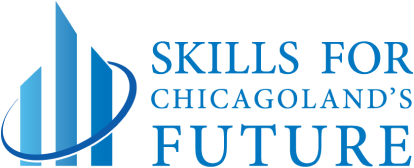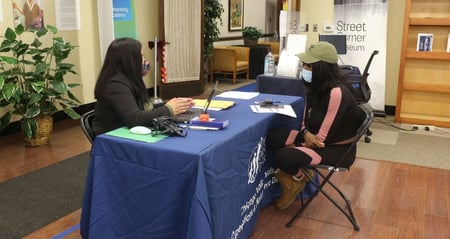If you’re one of the millions of Americans who have struggled with long-term unemployment, or an employer looking to fill a position, you’ve likely heard of “the skills gap,” the belief that unemployed talent can’t find gainful employment because they lack the skills to succeed in today’s labor market. The traditional approach taken by most workforce development agencies in response to this idea is to provide training in the hopes that new skills or certifications on a resume will lead a candidate to a job. But what if skills and job requirements align, but job seekers still can’t access open job opportunities?
Each year, the United States spends $41 billion on workforce development, but historically underserved and marginalized populations experience unemployment rates well above national, state, and city levels. Even as unemployment continues to trend downward in 2021 while we recover from the economic and social upheaval caused by global pandemic, “racial disparities in unemployment rates persist.”
As of December 2021, after almost two years of shutdowns and layoffs, “about 2.2 million Americans remain long-term unemployed,” a term defined by the Bureau of Labor Statistics as someone who has been out of work for at least 27 weeks and “actively sought employment during the past four weeks.” That statistic has doubled since pre-pandemic reporting in February 2020.
At Skills, we don’t believe that over two million workers in the U.S., or hundreds of thousands here in Chicago, lack the skills that employers need. On the contrary, we know that valuable talent is distributed evenly—from Pullman to Austin to Rogers Park. We’ve also been hearing about “the labor shortage” and “the Great Resignation” for months.
With almost 5 million more jobs available nationwide than applicants to fill them, including “in some Chicago neighborhoods that have been screaming for more jobs for decades,” the data begins to hint at a more nuanced reality than underqualified or uninterested workers. Clearly, companies have positions they need filled.
So, if workers have the tools to succeed, and employers have opportunities available, why the disconnect?
Skills was built on the foundational belief that the primary blocker to employment, career pathways, and economic mobility is not a skills gap but a lack of access to opportunities. Before we’d heard of terms like “opportunity gap” or “access gap,” we flipped the traditional workforce development model to create a jobs-first approach that leverages the existing skills of the local applicant pool while working with companies to remove barriers and biases in their screening, hiring, and retention practices. In reducing obstacles to employment, we create equity in career growth and economic mobility.
Through our jobs-first workforce development model, we work directly with a company to identify long-term hiring needs, and then we recruit a qualified, diverse pool of unemployed and underemployed talent to fill those existing positions. Additional support and training takes place once a candidate has been placed into a role.
As our colleague Dr. Annelies Goger from the Brookings Institute writes, “it’s time to abandon the skills gap narrative. It treats labor markets as transactional and assumes hiring processes are objective with regard to how employers recruit, sort, and assess the value of candidates. It ignores social dynamics such as race, class, age, and gender bias in the hiring process. Due to racial segregation and stunted access to professional networks, many talented Black, Latino or Hispanic, and Indigenous workers never get a real opportunity to compete for key jobs in the emerging economy.”
Who you know—rather than what you know—is often a key factor in finding work. Too often, local talent from disinvested communities isn’t embedded in the network employers tap into. At Skills, we level the playing field and connect our network of hiring partners to job-ready talent by reconsidering disqualifiers in the application process, consulting companies on investing in local neighborhoods, collaborating on the creation of career pathway programs, and supporting job seekers throughout their interview and hiring processes.
We know unemployed and underemployed job seekers across Chicagoland are looking for jobs, and we know jobs are looking for people. Skills is here to help them connect by bridging the access gap.



